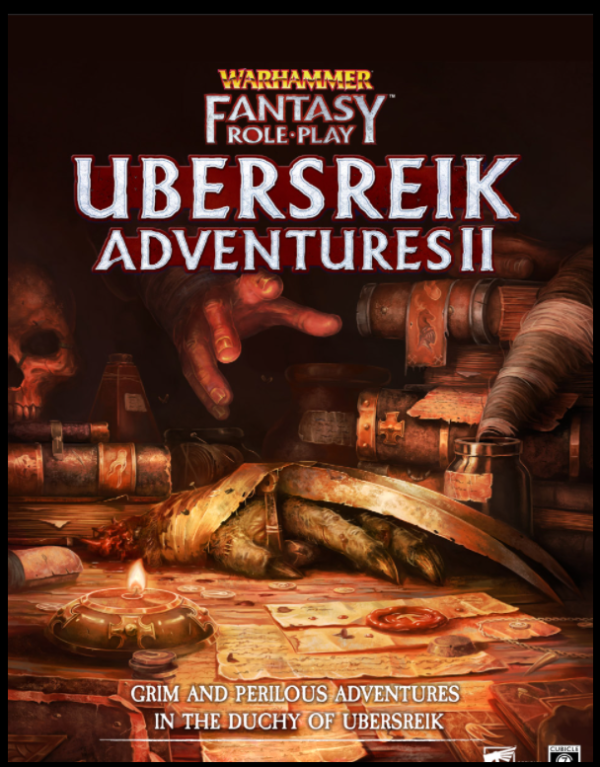

I’ve been a reviewer on several platforms for over a decade. This is what I learned.
Amazon recently reminded me (apropos of nothing) that my reviews on that platform have over 637,000 views and nearly 10,000 likes. That’s not a surprise given I’ve written over 2,000 reviews over the span of a decade. And that doesn’t include my reviews for RPG.net, Allgame.com, Gamers.com, and DriveThruRPG. I’ve reviewed everything from books to movies to video games to tabletop role-playing games to dice (so, so much dice). Here’s how I try to guide my writing. These are tips, not rules, as reviewing is a tricky business.
Anyone Can Be a Reviewer
The Internet has created a lot of low-barrier-to-entry opportunities, and reviewing is one of them. Anyone can be a reviewer. Not everyone should be a reviewer, but there’s no gatekeepers to stop poor reviewers from writing reviews. This has led to entire fake review profiles, sites, and industries dedicated to making a product look better than it is.
If you plan to review at least semi-professionally (and by that I mean, get paid somehow, see below), it’s worth understanding what makes a good review. And simply put, a good review, even of a bad product, explains itself. Readers may disagree with your assessment, but if you explain your reasoning they can decide for themselves if your perspective reflects theirs. Fake reviews rarely go into much detail for precisely this reason, because it defeats the purpose of mass-spamming fake reviews to bolster a product (or to damage the reputation of a competitor!).
There Are Ways to Get Paid
There are professional reviewers who do nothing but review products full time, but since I have a day job I’m more judicious with my time. That means I don’t review everything, and increasingly only review things that interest me (not products someone pitched me). That’s a luxury though.
Now that the review industry has matured, there’s a way to get paid for virtually any product by using affiliate links. These provide a small percentage of sales if a customer buys the product after clicking through from your link. At one point, my wife and I ran our own virtual bookstore for this purpose.
Affiliate links are the minimum way to get paid, but they’re not the only way. The other possibility is free product. This in itself is a form of payment, and depending on the value of the product, can be significant. I’ve reviewed furniture and appliances for Amazon worth hundreds of dollars … and I also pay taxes on it.
There are a handful of sites that pay for reviews, EN World included. If you’re interested in becoming an EN World columnist, you can apply here.
Write Enough, But Not Too Much
Different platforms lend themselves to different review lengths. EN World and RPG.net have the space for long-form reviews, while reviews on Amazon and DriveThruRPG tend to be shorter. You can still write long reviews for these platforms, but they subtly encourage shorter reviews by cutting off the preview text after a certain character count, and few people click through to read the entire review.
But your review shouldn’t be so short that it doesn’t get the point across. Some products don’t require that much to convey how you feel about it, while others require a more in-depth examination of the content. Role-playing games, by their nature, should have at least three paragraphs if not more; dice usually don’t need nearly as much.
Your Rating Should Match Your Text
The five star range is typical of reviews these days, so it’s worth reflecting on what each rating means. Stars are a short-hand for reviews, so it’s important to get it right, because some readers may not read your text, and some platforms provide an average by adding up all the reviews and providing a score. This means while your text may not see the light of day, your score carries more weight in determining the product’s rating.
Five stars and one star ratings are easy enough: five means you are giving it the highest rating and therefore consider it to exceed your expectations, while one star reviews are below your expectations. What gets tricky is just how far above or below your expectations a review is. While three stars is average, two and four stars are more nebulous. They’re bad/good, but not necessarily THAT bad/good. There’s some wiggle room here in conveying how you feel, and truth is many five star reviews seem like they should be four star reviews after reading the text.
There are reviewers who give a product five stars but then list a major flaw in the text; there are reviewers who give products one star and then explain that it has nothing to do with the product (poor shipping, a weird smell in packaging, customer service, etc.). People use reviews to advance their own agendas all the time, like attacking a company or advancing their own philosophy. If you make your stars match your reviews, it will go a long way to getting someone to read it.
Your Turn: What tips do you have for reviewers?








